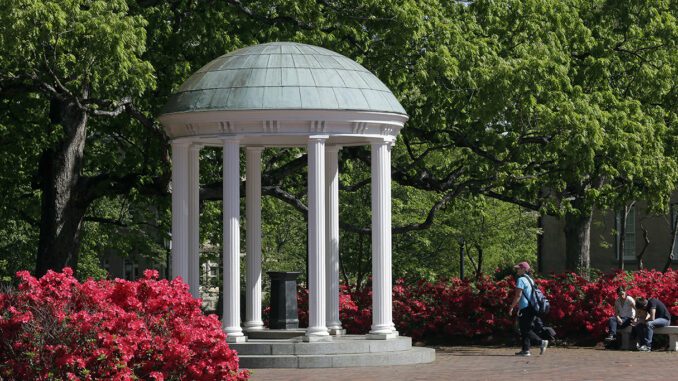
There have been over 4,500 bright young high school student leaders who have been awarded The Morehead-Cain, known as The Morehead Scholarship until 2007, since inception in 1951.
The hope was every recipient would go on to become leaders in North Carolina and the nation in every aspect of life ― business; law; research; medicine; art; music; engineering ― which many have accomplished.
The one area where Morehead-Cains have not been leaders is in the very area where we need great leaders ― politics and elective government. A mere four alums have been elected to Congress in the past half-century.
Not 4%. Four individuals.
Only nine — not 9% — have made it through a primary to be the nominee of their party for Congress or governor, none for the U.S. Senate.
It is the oddest thing since many of the questions asked of students during the interview process are related to politics and elective government service. I was asked who I thought was the most admired person in Washington at the time to which I responded “Sam Ervin” since it was during the Watergate hearings in 1974.
I found out later the final interview committee chair was a mortal political enemy of Sam Ervin. But he didn’t hold it against me apparently, thankfully.
A leader cannot be a state or national leader in politics and government if they don’t run for office. The tautology is self-evident.
When 2023 rolls around, there will be only one Morehead-Cain Scholar in high elective office anywhere in the country: North Carolina Gov. Roy Cooper.
There will be only one Morehead-Cain Scholar in the North Carolina General Assembly ― Representative Dr. Kristin Baker of Concord. She is also the only Morehead-Cain alum now serving in any state legislature anywhere in the United States.
Morehead-Cain alums live in all 50 states and over 385 congressional districts. Close to 1,000 reside in the state of North Carolina alone. With such numbers and geographical distribution, Morehead-Cain alums have the capacity to fill all 50 Governor’s Mansions; every one of 100 seats in the U.S. Senate and 2/3rds of the seats in the U.S. House. In North Carolina, every statewide executive office; 170 legislative seats and every elected judicial position could be filled with a Morehead-Cain scholar alum.
Morehead-Cain scholar alums are not alone. Many Rhodes Scholars used to aspire to be in the U.S. Senate, Congress and White House. No longer ― only one Senator now serving, Cory Booker of New Jersey, is a Rhodes Scholar.
There are no Robertson Scholars from Duke or Carolina serving in high elective office. There are no Park Scholars from NC State, serving in high elective office in North Carolina. It is like a self-imposed man-made virus has infected these high-school and collegiate achievers and deadened their leadership abilities when it comes to elective public service.
It is not the fault of the Morehead-Cain Foundation, the Robertson Foundation, the Park Program or the Rhodes Scholar program. Back in the early days of the Republic, people of great ability donated their time, ability and many times, their fortunes to create and then serve in the representative government we now take for granted.
Washington, Jefferson and Madison never campaigned for president personally ― they stayed at home and awaited the outcome of elections to be delivered to them via horse-carried messenger. They considered openly campaigning for elective office to be beneath their personal standards of dignity and propriety.
However, behind the scenes, they strategized with political friends and maneuvered like mad to get elected. They desperately wanted to serve as leaders ― Jefferson considered serving in the democratic republic the “highest calling” to which a person could aspire.
Much of the reluctance of any successful person we all want to see run for office has to do with fear. Fear of losing; fear of the media; fear of losing income; fear of skeletons in the closet.
All are justifiable fears. Every endeavor carries its own share of fear. Great leaders know in their heart they can help solve problems. They run to problems they think they can fix, not away from them.
Former Charlotte Mayor Richard Vinroot used to say he thought the “fine print” of the Morehead Scholarship award letter metaphorically implied that in return for such a free education at such a prestigious university as UNC Chapel Hill, each recipient would run for public office at some time in their life.
Perhaps they can emulate Gov. Cooper and Rep. Baker. They don’t have to run for president or Congress — they can run for local school board where their expertise and leadership abilities will truly change the world.



